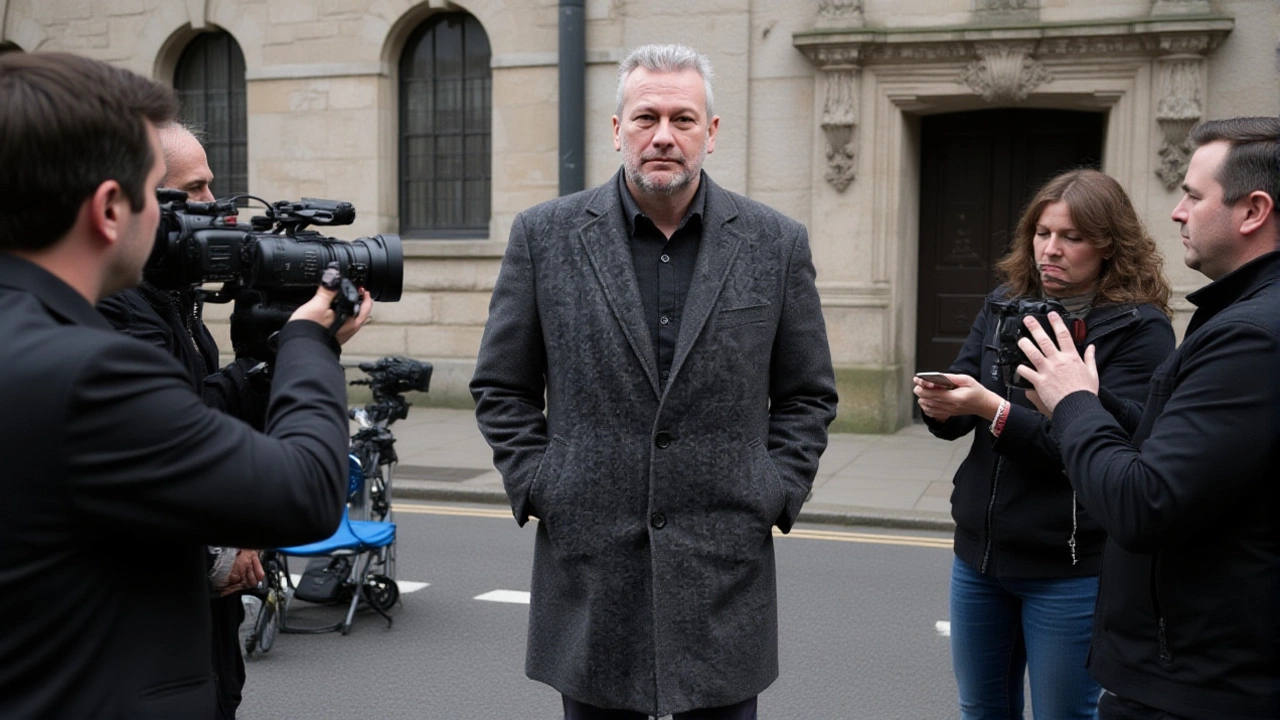
When Nathan John Gill walked into London’s Old Bailey on November 21, 2025, he wasn’t just facing a judge—he was standing before the wreckage of his own credibility. The 52-year-old former leader of Reform UK in Wales and ex-Member of the European Parliament (MEP) for Wales was sentenced to 10 years and 6 months in prison for taking bribes from a pro-Russian Ukrainian operative. It wasn’t just corruption. It was sabotage. And it happened while he held one of the most trusted political roles in the UK’s European engagement.
The Trap Was Set Years Before
The story didn’t begin in court. It began in September 2018, when Gill, then still an MEP, started exchanging messages with Voloshyn, a Ukrainian politician tied to Vladimir Putin’s inner circle. Over WhatsApp, Gill agreed to "make introductions in the European Parliament" and "try to win over several MEPs"—words that would later become evidence in a landmark prosecution. The Metropolitan Police didn’t stumble on this by accident. They seized his phone in September 2021 as he traveled to Russia for a scientific conference. What they found wasn’t just casual chatter—it was a blueprint for foreign influence.Between 2018 and 2019, Gill received approximately £15,000 in payments, laundered through multiple accounts. In return, he delivered scripted speeches in the European Parliament attacking Ukraine’s democratic institutions after Volodymyr Zelensky’s 2019 election win. He gave interviews to pro-Russian Ukrainian media outlets, framing Zelensky as a Western puppet. He even helped promote Viktor Medvedchuk, a sanctioned Ukrainian oligarch and Putin ally. The twist? Gill had once been a UK Independence Party (UKIP) member, then jumped to Reform UK. He wasn’t just a politician—he was a bridge between British populism and Russian geopolitical goals.
"You Abused a Position of Significant Authority"
Justice Bobbie Cheema-Grubb, the High Court judge presiding at the Old Bailey, didn’t mince words. "You accepted payments from foreign nationals," she said, "made statements on important international matters at their behest, utilized scripted material presented as your own, and orchestrated the involvement of other MEPs." Her language was deliberate: "sophisticated offending," "profound harm," and "fundamentally compromised the integrity of a supranational legislative body."What made this case extraordinary wasn’t just the money—it was the scale of institutional betrayal. Gill didn’t just speak out of turn. He became a puppet. The European Parliament’s Committee on Legal Affairs had already launched an ethics probe in 2020, but it closed without sanctions after his term ended. That’s why the criminal case mattered: it was the first time the UK’s 2017 Foreign Influence Registration Scheme had led to a conviction. This wasn’t a political scandal. It was a criminal one.
Reform UK Disowned Him—But the Questions Remain
Within hours of the sentencing, Reform UK issued a statement calling Gill’s actions "reprehensible, treasonous and unforgivable." They’d already expelled him in 2023. But the party’s leadership—especially Nigel Farage—now faces uncomfortable scrutiny. Liberal Democrats leader Sir Edward Jonathan Davey didn’t hold back: "This isn’t an isolated case. It’s a symptom. Reform UK has been a conduit for foreign interference, and Parliament must investigate how deep this goes."Security Minister Dan Jarvis called it "a betrayal of our country, our people and our national security." The Crown Prosecution Service echoed that: "This case strikes at the heart of democratic integrity." And they’re right. Gill didn’t just take cash. He took the trust of Welsh voters who elected him as an MEP. He took the credibility of the European Parliament. He took the moral high ground of British democracy.
The Evidence Was in the Messages
The Metropolitan Police’s Counter Terrorism Command, running Operation CORDURA, dug through 12,843 WhatsApp messages, 472 emails, and 37 months of financial records. They traced payments from Voloshyn to Gill’s personal accounts—some disguised as "consultancy fees," others as "travel reimbursements." One message, dated November 14, 2018, read: "We need you to say Zelensky is unstable. The EU must not recognize him as legitimate." Gill replied: "I can arrange that in the next session."What’s chilling is how routine it seemed. Gill didn’t act like a spy. He acted like a politician making a side hustle. He didn’t hide his actions—he just assumed no one would care. Until they did.
What This Means for UK Politics
Gill’s sentencing sets a precedent. It proves the UK can prosecute foreign influence operations—not just as intelligence failures, but as criminal acts. But it also exposes a gaping blind spot: how many other politicians have been quietly paid to soften their criticism of authoritarian regimes? How many more are still in office?The European Parliament has no mechanism to bar former MEPs from future office. Gill could, technically, run again in 2029—if he’s released in 2032 and if Reform UK lets him. That’s not a loophole. It’s a vulnerability.
Why This Matters to You
You might think, "I don’t vote in European elections." But you do vote in UK elections. And if a politician can be bought to undermine Ukraine’s democracy, what’s stopping them from undermining Welsh devolution? Or blocking NATO funding? Or weakening sanctions on Russia? Gill didn’t act alone. He was a node in a network. And that network is still active.Frequently Asked Questions
How did Nathan Gill get caught?
Gill was caught when Metropolitan Police seized his phone during a trip to Russia in September 2021. Forensic analysis uncovered over 12,800 WhatsApp messages dating back to 2018, including direct agreements to influence EU policy in exchange for cash. Financial records confirmed £15,000 in payments from a pro-Russian Ukrainian operative, Voloshyn, matching the timeline of his parliamentary speeches.
Why was the sentence 10.5 years instead of 12?
Sentencing guidelines for foreign influence offenses start at 12 years, but Gill received a reduction because he pleaded guilty in September 2025 and cooperated on some aspects of the investigation. The judge noted his early admission spared the state from a lengthy trial, though she emphasized his actions were deliberate, calculated, and deeply damaging to democratic norms.
What role did the European Parliament play in this?
The European Parliament’s Committee on Legal Affairs opened an ethics investigation into Gill in 2020, but it concluded without sanctions after his term ended in 2020. No formal action was taken because the Parliament lacks criminal jurisdiction. This case proved that national courts, not EU bodies, are now the only effective check on MEPs engaged in foreign interference.
Is Reform UK under investigation?
While Reform UK as an organization hasn’t been charged, Liberal Democrat leader Ed Davey has formally called for a parliamentary inquiry into the party’s ties to foreign actors. The CPS confirmed Gill acted as an individual, but the scale of his outreach—targeting other MEPs—raises questions about whether others in the party were aware or complicit. No formal investigation has been launched yet.
Could this happen again?
Absolutely. The UK’s Foreign Influence Registration Scheme is still new and under-resourced. Only 17 cases have been referred since 2017, and Gill’s is the first conviction. Without mandatory transparency for political consultants, better vetting of MEPs, and stronger penalties for foreign lobbying, others will test the system. The real risk isn’t just corruption—it’s normalization.
What does this mean for UK-Ukraine relations?
Gill’s actions directly undermined Western support for Ukraine during its most vulnerable post-election period. His scripted attacks on Zelensky’s legitimacy echoed Kremlin talking points and gave Russian propaganda a British veneer. While the UK government has since doubled aid to Ukraine, this case has damaged trust among Ukrainian officials, who now question whether British politicians are truly allies—or potential assets.
